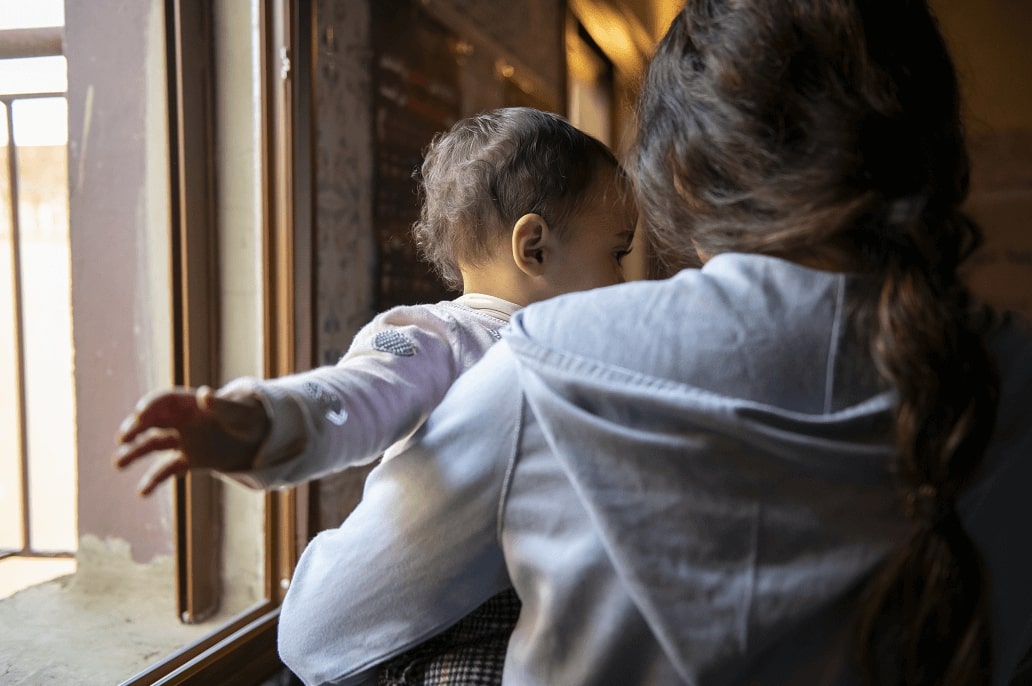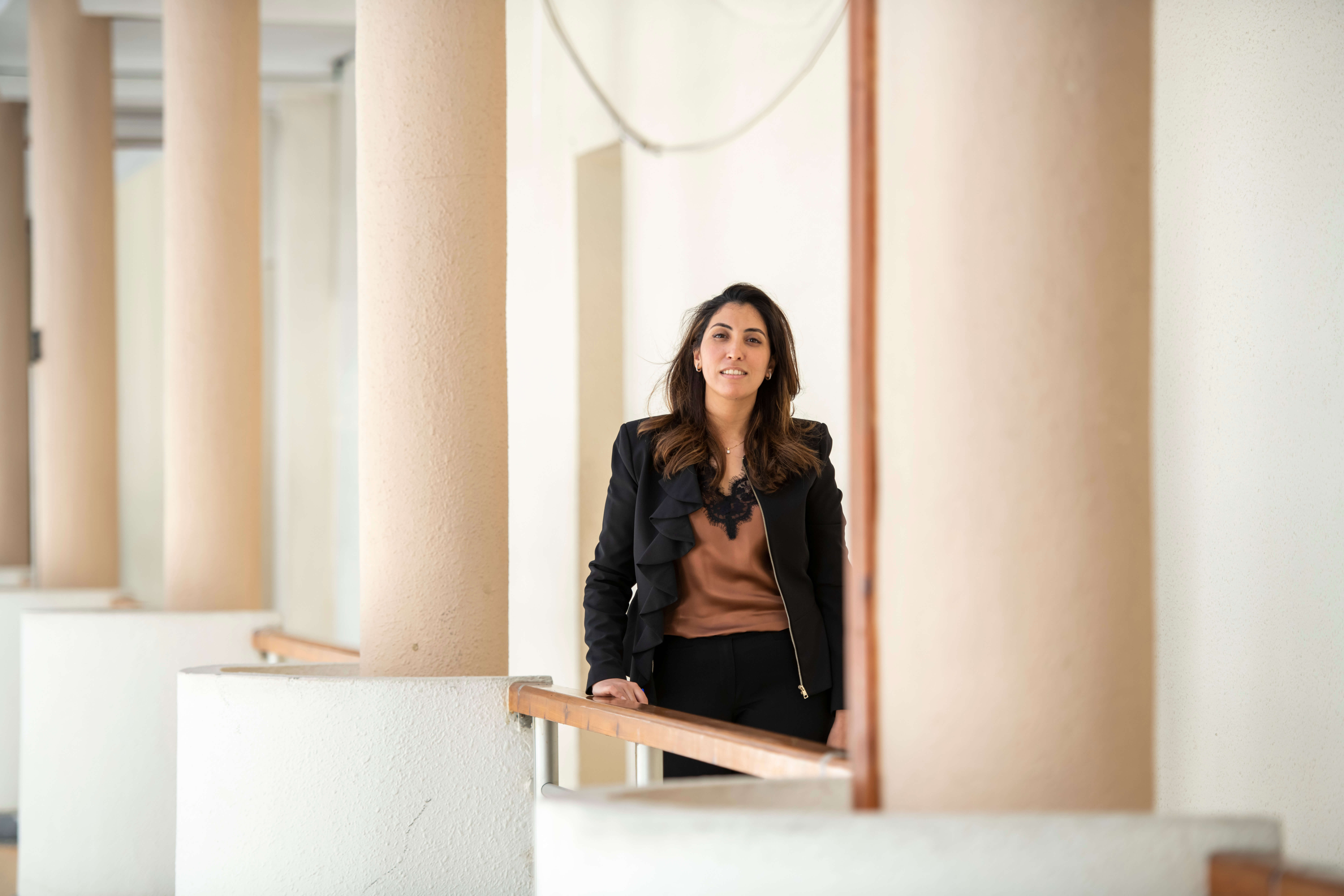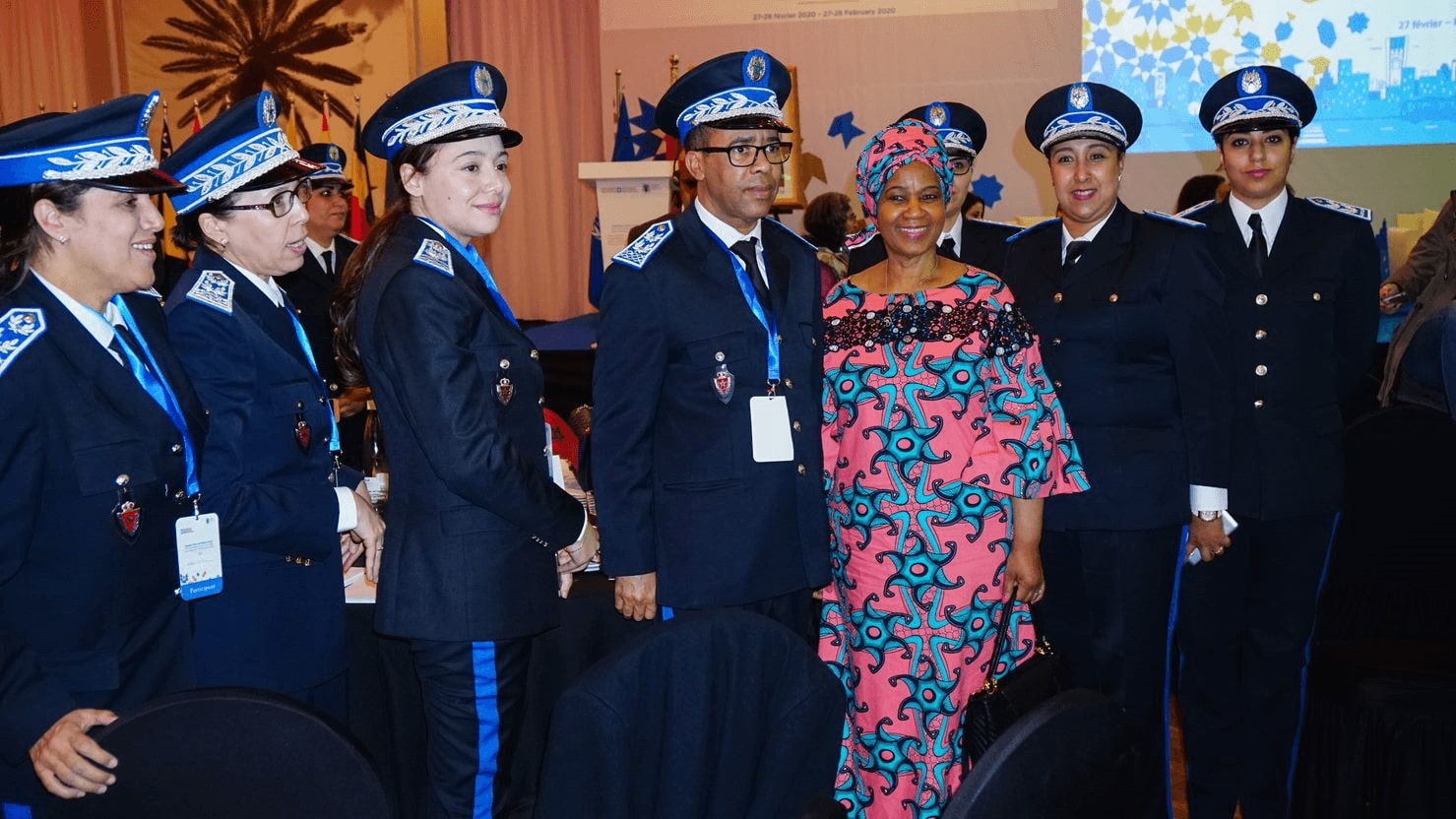Providing survivor-centered police and justice services in Morocco
Date:
“I always feared the police. You hear stories of women going to the police station to report their violent husbands and they get told ‘you deserve it’. Then she must wait in a room full of men, feeling vulnerable and misjudged. On the way to the police station, I was terrified. After what I went through, the last thing I wanted was to feel embarrassed, ridiculed or humiliated,” recalls Amina*, a survivor of violence in Morocco.

In Morocco, while a new law was adopted in 2018 that prohibits physical, psychological, sexual, or economic violence against women in private and public spheres, only 1 in 10 women experiencing violence lodge a complaint with the police or other authorities. Even fewer women will report cases of domestic violence.
Transforming initial contact with police
When police provide survivor-centred and trauma-informed service, it can help ensure her safety and minimize her risk of victimization. One survivor’s positive initial contact experience with the justice system can encourage another survivor to report violence to the police. So, in 2018, and, as soon as the law 103-13 related to violence against women was published, the General Directorate of National Security, with the support of UN Women, restructured the Police Units for Women Victims of Violence in all 132 principal police stations across the country, and a focal point was formally appointed in each of the 440 district police stations to refer survivors to the nearest unit.
As an initial contact point to listen, protect, record, accompany and refer cases of violence against women and girls, each unit is staffed with a trained police chief and a police officer who demonstrate to survivors that the police force is committed to their well-being and that their pathway to justice will be supported without discrimination, bias or pre-judgement.

“It takes a lot of determination and courage for women to ask the police for support. Our role is to give survivors all the time they need to feel safe and comfortable, and for them to trust us enough to tell their story,”, explains Police Chief Saliha Najeh. Chiefs of the Police Units for Women Victims of Violence are appointed on their merits and sensitivity to the issue. They receive training from UN Women on survivor-centered approaches and international norms and standards for police handling of cases involving women victims of violence.
“On the way to the police station, I was afraid that they would ignore me and that they wouldn’t believe me,” says Layla*, who was abused, pregnant and unmarried (sexual relations outside of marriage are illegal in Morocco) when she sought help.
“But when I arrived, I was warmly welcomed. The first thing she told me was that there is a solution to everything. I will never forget that. It has become my motto in life. Her words encouraged me to tell her the whole story. At the time, I felt insecure, unsafe, and that my life was over, but meeting her made me realize that I still have a chance to get my life back,” smiles Layla. “After contacting the police unit, I felt empowered and, most of all, supported. It felt so good to be surrounded by caring people.” The unit later referred Layla to a shelter for single mothers, which enabled her to complete her higher education while taking care of her child.

Survivor-centered approach must be at the heart of policing and justice services
Building on the success of the Police Units for Women Victims of Violence, the General Directorate of National Security and UN Women also developed a Training of Trainers toolkit, funded by the Government of Canada, on survivor-centered approaches for the entire police sector.

Samia el Hamdaoui, a Deputy Public Prosecutor, was one of 45 participants who attended a training in 2019. “It is impossible to walk out of the training the same way you walked in. When the views you have on certain issues change, it impacts the whole process of caring for women who have experienced violence. I’ve learned that being an active listener and showing empathy helps survivors, and ultimately our efforts to provide support for them.”
Now, 30 Police Chiefs of Units for Women Victims of Violence are master trainers who provide training to police at all levels. These units have been put to the test during the COVID-19 pandemic, but essential services, the Police Units for Women Victims of Violence and the courts all continued operation and service delivery for survivors of violence during the pandemic. A 24-hour helpline was established that allowed survivors to reach the court and report cases, and each court became available online, enabling women to declare and file a complaint without having to physically travel to the court.
In 2020, the General Directorate of National Security also conducted its first digital campaign, explaining what is violence against women and the existing legal mechanisms to protect survivors, and sharing information on available services during lockdowns. In 2021, in partnership with UNODC and the International Association of Women Police (IAWP), UN Women developed a Handbook on Gender-Responsive Police Services for Women and Girls Subject to Violence. The Handbook is being rolled out by UN Women, with the support of UNODC and the International Association of Women Police, targeting police middle managers and first responders alike across the region. It gives practical, in-depth guidance on how to respond during crises such as the COVID-19 pandemic; preventing violence against women and girls in conflict settings; and tackling online violence.

The partnership between the General Directorate of National Security and UN Women was launched in 2018, has focused on the prevention, protection and response to violence against women and girls in Morocco, and is being carried out with funding and support from the Government of Canada. It aims to strengthen the protection and promotion of women's rights and to create an enabling environment for women and girls who are victims of violence through the establishment of accessible and quality essential services, particularly police and justice services.
* Name and personal information have been changed to protect the identity of the individuals
UN Women, together with UNFPA, UNDP, UNODC and WHO, developed a Regional Flagship Programme to address Violence Against Women and Girls in the Arab States to bridge research with policy recommendations, provide guidance to adapt international standards in service provision to the region, and strengthen interagency understanding and collaboration in areas such as prevention.
Resources:
- https://morocco.unwomen.org/fr/actualites-evenements/actualites/2020/04/hayat-ndichi
- https://morocco.unwomen.org/fr/actualites-evenements/actualites/2019/09/journee-etude-coordination-intersectorielle-prise-en-charge
- https://morocco.unwomen.org/fr/actualites-evenements/actualites/2020/01/formation-des-agents-de-police
- https://morocco.unwomen.org/fr/ressources-medias/publications/2020/12/rapport-sur-les-violences-faites-aux-femmes-pendant-le-confinement-au-maroc